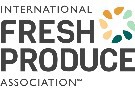International Fresh Produce Association (IFPA) submitted public comments on the Regulation of the European Parliament and of the Council on packaging and packaging waste.
“We are fully committed to reducing (with the long-term goal of eliminating) single-use packaging waste,” said IFPA chief science officer Dr. Max Teplitski. “These proposed revisions will have a major impact on the bilateral trade with the EU, as well as on the availability, use and reuse, refill and recycling of single-use packaging.”
These public comments articulate IFPA’s strategy for promoting sustainable packaging for the fresh produce industry while ensuring food safety and quality of the product and reducing food loss and waste. IFPA’s comments included:
- Fresh produce is a unique commodity, consumed fresh, often without a cooking step. The industry honors the trust of the consumers and recognizes the responsibility of providing a highly nutritious product that is also safe from pathogens and contaminants. IFPA applauds the EU’s recognition that plastic packaging is the most effective way to minimize microbiological hazards and supports exemptions in Annex V aimed at avoiding microbiological hazards.
- As a fresh commodity with a significant (often >90 percent) water content, plastic packaging is critical for reducing water loss and thus maintaining the quality and consumer appeal of the product. IFPA applauds the EU’s recognition that plastic packaging is the most effective way to reduce water loss and maintain the freshness of the product, and prevent shocks, and as such, IFPA supports exemptions in Annex V aimed at maintaining the quality and desirability of the product.
- The global fresh produce industry made significant efforts to develop compostable plastic packaging for fresh/fresh-cut produce. To maintain the environmental commitment and to provide safe products, IFPA stressed the importance of ensuring access to compostable plastic or compostable composite packaging that is appropriately labeled to prevent the contamination of the recycling stream.
- IFPA also urged regulators to exempt functional produce stickers less than a square inch in size from this pending regulation. Technological advances made industrially and home-compostable stickers available, and these are coming onto the market. However, compostable stickers do not attach to the surfaces of all produce. Stickers carry information about pricing, traceability, and tracking of the product and allow the product to be sold without packaging. The use of a functional sticker less than a square inch in size prevents the use of packaging that is at least 10 times as large.
IFPA’s comments can be read on the European Commission website.
IFPA also leads public-private partnerships aimed at developing technological solutions. Working with the USDA Agricultural Research Service, USDA Foreign Ag Service, Institute for Food Safety and Health at the Illinois Institute of Technology, Sinclair and Wintermute Biomedical, IFPA supports developments of home-compostable PLU stickers and cost-effective tools for sanitizing reusable packaging.
 For more information:
For more information:
Ashley Sempowski
International Fresh Produce Association
ASempowski@freshproduce.com
https://www.freshproduce.com/
